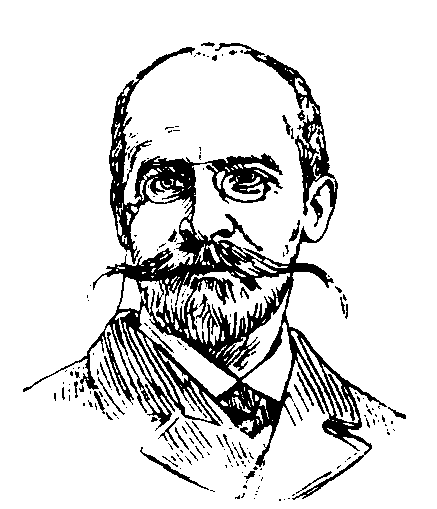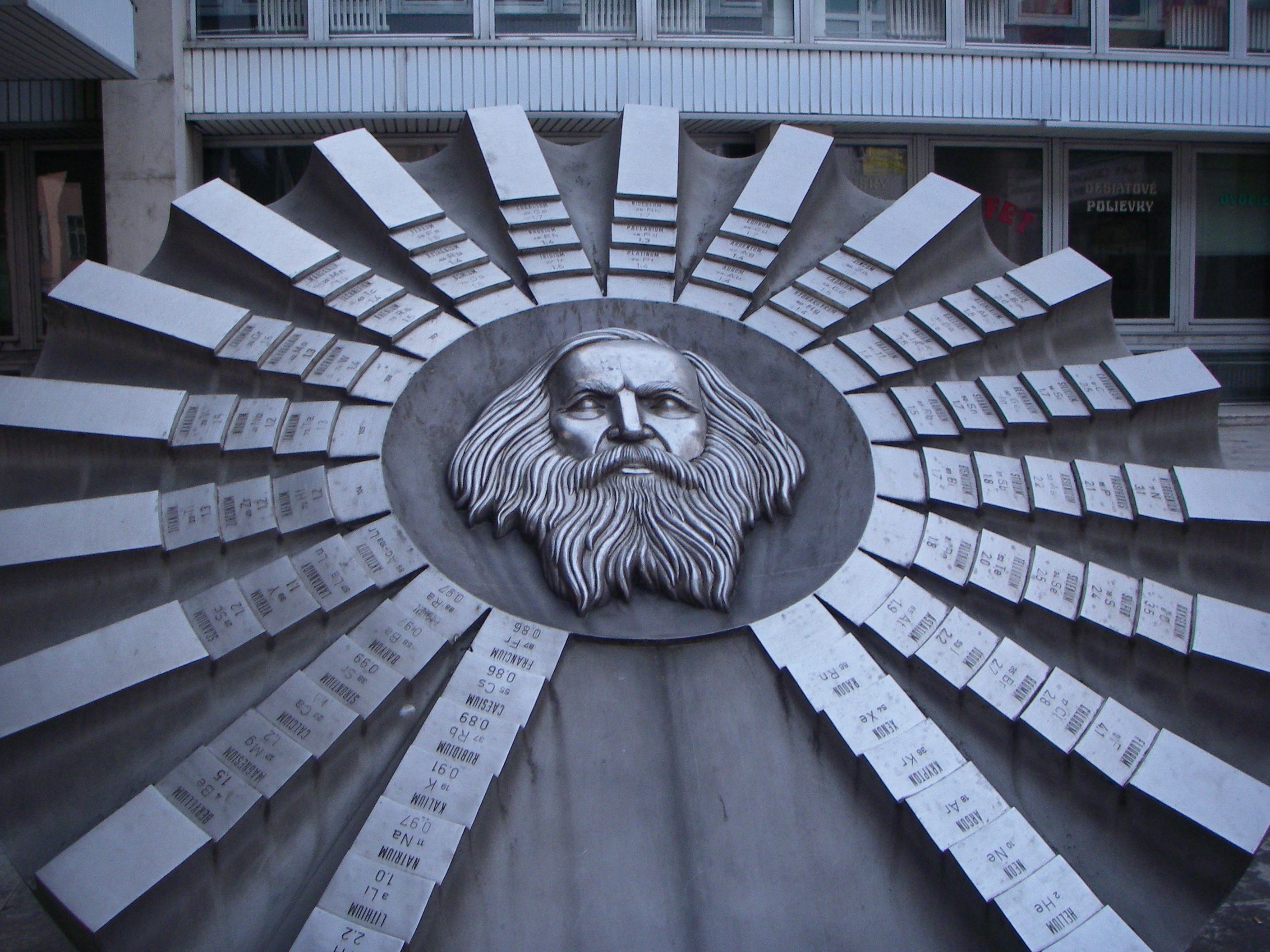|
Nikolay Demyanov
Nikolay Yakovlevich Demyanov (russian: Никола́й Я́ковлевич Демья́нов; , Tver – March 19, 1938, Moscow), also known as Demjanov and Demjanow, was a Russian organic chemist and a member of the USSR Academy of Sciences (1929). He is internationally known for the Demjanov rearrangement organic reaction Organic reactions are chemical reactions involving organic compounds. The basic organic chemistry reaction types are addition reactions, elimination reactions, substitution reactions, pericyclic reactions, rearrangement reactions, Mechanistic Organ ... and other discoveries. He was a recipient of the Lenin Prize in 1930. Bibliography * External links Academician Nikolay Yakovlevich Demyanov 1861 births 1938 deaths Chemists from the Russian Empire Soviet chemists 20th-century chemists Russian inventors People from Tver Corresponding Members of the Russian Academy of Sciences (1917–1925) Full Members of the USSR Academy of Sciences Imperial ... [...More Info...] [...Related Items...] OR: [Wikipedia] [Google] [Baidu] |
Tver
Tver ( rus, Тверь, p=tvʲerʲ) is a city and the administrative centre of Tver Oblast, Russia. It is northwest of Moscow. Population: Tver was formerly the capital of a powerful medieval state and a model provincial town in the Russian Empire, with a population of 60,000 on 14 January 1913. It is situated at the confluence of the Volga and Tvertsa Rivers. The city was known as Kalinin ( rus, Кали́нин, Kalínin) from 1931 to 1990. The city is where three rivers meet, splitting the town into northern and southern parts by the Volga River, and divided again into quarters by the Tvertsa River, which splits the left (northern) bank into east and west halves, and the Tmaka River which does the same along the southern bank. History Medieval origins Tver's foundation year is officially accepted to be 1135,Charter of Tver, Article 1 although there is no universal agreement on this date and some estimates place it as late as the second half of the 13th century. The ... [...More Info...] [...Related Items...] OR: [Wikipedia] [Google] [Baidu] |
Organic Reaction
Organic reactions are chemical reactions involving organic compounds. The basic organic chemistry reaction types are addition reactions, elimination reactions, substitution reactions, pericyclic reactions, rearrangement reactions, Mechanistic Organic Photochemistry, photochemical reactions and organic redox reaction, redox reactions. In organic synthesis, organic reactions are used in the construction of new organic molecules. The production of many man-made chemicals such as drugs, plastics, food additives, fabrics depend on organic reactions. The oldest organic reactions are combustion of organic fuels and saponification of fats to make soap. Modern organic chemistry starts with the Wöhler synthesis in 1828. In the history of the Nobel Prize in Chemistry awards have been given for the invention of specific organic reactions such as the Grignard reaction in 1912, the Diels-Alder reaction in 1950, the Wittig reaction in 1979 and olefin metathesis in 2005. Classifications Organic c ... [...More Info...] [...Related Items...] OR: [Wikipedia] [Google] [Baidu] |
Corresponding Members Of The Russian Academy Of Sciences (1917–1925)
Correspondence may refer to: *In general usage, non-concurrent, remote communication between people, including letters, email, newsgroups, Internet forums, blogs. Science *Correspondence principle (physics): quantum physics theories must agree with classical physics theories when applied to large quantum numbers *Correspondence principle (sociology), the relationship between social class and available education *Correspondence problem (computer vision), finding depth information in stereography *Regular sound correspondence (linguistics), see Comparative method (linguistics) Mathematics * Binary relation ** 1:1 correspondence, an older name for a bijection ** Multivalued function * Correspondence (algebraic geometry), between two algebraic varieties * Correspondence (category theory), the opposite of a profunctor * Correspondence (von Neumann algebra) or bimodule, a type of Hilbert space * Correspondence analysis, a multivariate statistical technique Philosophy and religion ... [...More Info...] [...Related Items...] OR: [Wikipedia] [Google] [Baidu] |
People From Tver
A person ( : people) is a being that has certain capacities or attributes such as reason, morality, consciousness or self-consciousness, and being a part of a culturally established form of social relations such as kinship, ownership of property, or legal responsibility. The defining features of personhood and, consequently, what makes a person count as a person, differ widely among cultures and contexts. In addition to the question of personhood, of what makes a being count as a person to begin with, there are further questions about personal identity and self: both about what makes any particular person that particular person instead of another, and about what makes a person at one time the same person as they were or will be at another time despite any intervening changes. The plural form "people" is often used to refer to an entire nation or ethnic group (as in "a people"), and this was the original meaning of the word; it subsequently acquired its use as a plural form of ... [...More Info...] [...Related Items...] OR: [Wikipedia] [Google] [Baidu] |
Russian Inventors
This is a list of inventors from the Russian Federation, Soviet Union, Russian Empire, Tsardom of Russia and Grand Duchy of Moscow, including both ethnic Russians and people of other ethnicities. This list also includes those who were born in Russia or its predecessor states but later emigrated, and those who were born elsewhere but immigrated to the country or worked there for a considerable time, (producing inventions on Russian soil). For Russian inventions in chronological order, see the Timeline of Russian inventions and technology records. Alphabetical list A B C D E F G H I J K L M N O P R S T U V W Y Z See also * List of Russian scientists * Russian culture * Timeline of Russian inventions and technology records References {{DEFAULTSORT:Russian Inventors * Inventors Lists of inventors Inventors An invention is a unique or novel device, method, composition, idea or process. An invention may be an improvemen ... [...More Info...] [...Related Items...] OR: [Wikipedia] [Google] [Baidu] |
Soviet Chemists
This list of Russian chemists includes the famous chemists and material scientists of the Russian Federation, the Soviet Union, the Russian Empire and other predecessor states of Russia. Alphabetical list __NOTOC__ A *Aleksandr Arbuzov, discovered Arbuzov reaction. B * Alexander Baykov, an academician of the Russian Academy of Sciences, USSR Academy of Sciences. *Ernest Beaux, inventor of Chanel No. 5, ''"the world's most legendary fragrance"'' *Nikolay Beketov, inventor of aluminothermy, a founder of physical chemistry *Friedrich Konrad Beilstein, proposed the Beilstein test for the detection of halogens, author of the Beilstein database in organic chemistry *Boris Pavlovich Belousov, Boris Belousov, chemist and biophysicist, discoverer of Belousov–Zhabotinsky reaction, a classical example of non-equilibrium thermodynamics *Alexander Borodin, chemist and composer, the author of the famous opera ''Prince Igor'', discovered Borodin reaction, co-discovered Aldol reaction *Al ... [...More Info...] [...Related Items...] OR: [Wikipedia] [Google] [Baidu] |
Chemists From The Russian Empire
A chemist (from Greek ''chēm(ía)'' alchemy; replacing ''chymist'' from Medieval Latin ''alchemist'') is a scientist trained in the study of chemistry. Chemists study the composition of matter and its properties. Chemists carefully describe the properties they study in terms of quantities, with detail on the level of molecules and their component atoms. Chemists carefully measure substance proportions, chemical reaction rates, and other chemical properties. In Commonwealth English, pharmacists are often called chemists. Chemists use their knowledge to learn the composition and properties of unfamiliar substances, as well as to reproduce and synthesize large quantities of useful naturally occurring substances and create new artificial substances and useful processes. Chemists may specialize in any number of subdisciplines of chemistry. Materials scientists and metallurgists share much of the same education and skills with chemists. The work of chemists is often related to the ... [...More Info...] [...Related Items...] OR: [Wikipedia] [Google] [Baidu] |
1938 Deaths
Events January * January 1 ** The new constitution of Estonia enters into force, which many consider to be the ending of the Era of Silence and the authoritarian regime. ** State-owned railway networks are created by merger, in France ( SNCF) and the Netherlands (Nederlandse Spoorwegen – NS). * January 20 – King Farouk of Egypt marries Safinaz Zulficar, who becomes Queen Farida, in Cairo. * January 27 – The Honeymoon Bridge at Niagara Falls, New York, collapses as a result of an ice jam. February * February 4 ** Adolf Hitler abolishes the War Ministry and creates the Oberkommando der Wehrmacht (High Command of the Armed Forces), giving him direct control of the German military. In addition, he dismisses political and military leaders considered unsympathetic to his philosophy or policies. General Werner von Fritsch is forced to resign as Commander of Chief of the German Army following accusations of homosexuality, and replaced by General Walther ... [...More Info...] [...Related Items...] OR: [Wikipedia] [Google] [Baidu] |
1861 Births
Statistically, this year is considered the end of the whale oil industry and (in replacement) the beginning of the petroleum oil industry. Events January–March * January 1 ** Benito Juárez captures Mexico City. ** The first steam-powered carousel is recorded, in Bolton, England. * January 2 – Friedrich Wilhelm IV of Prussia dies, and is succeeded by Wilhelm I. * January 3 – American Civil War: Delaware votes not to secede from the Union. * January 9 – American Civil War: Mississippi becomes the second state to secede from the Union. * January 10 – American Civil War: Florida secedes from the Union. * January 11 – American Civil War: Alabama secedes from the Union. * January 12 – American Civil War: Major Robert Anderson sends dispatches to Washington. * January 19 – American Civil War: Georgia secedes from the Union. * January 21 – American Civil War: Jefferson Davis resigns from the United States Senate. * January 26 ... [...More Info...] [...Related Items...] OR: [Wikipedia] [Google] [Baidu] |
Demjanov Rearrangement
The Demjanov rearrangement is the chemical reaction of primary amines with nitrous acid to give rearranged alcohols. It involves substitution by a hydroxyl group with a possible ring expansion. It is named after the Russian chemist Nikolai Jakovlevich Demjanov (Dem'anov, Demianov) (1861–1938). : Reaction mechanism The reaction process begins with diazotization of the amine by nitrous acid. The diazonium group is a good leaving group, forming nitrogen gas when displaced from the organic structure. This displacement can occur via a rearrangement (path A), in which one of the sigma bonds adjacent to the diazo group migrates. This migration results in an expansion of the ring. The resulting carbocation is then attacked by a molecule of water. Alternately, the diazo group can be displaced directly by a molecule of water in an SN2 reaction (path B). Both routes lead to formation of an alcohol. Uses The Demjanov rearrangement is a method to produce a 1-carbon ring enlargement in fo ... [...More Info...] [...Related Items...] OR: [Wikipedia] [Google] [Baidu] |
Moscow
Moscow ( , US chiefly ; rus, links=no, Москва, r=Moskva, p=mɐskˈva, a=Москва.ogg) is the capital and largest city of Russia. The city stands on the Moskva River in Central Russia, with a population estimated at 13.0 million residents within the city limits, over 17 million residents in the urban area, and over 21.5 million residents in the metropolitan area. The city covers an area of , while the urban area covers , and the metropolitan area covers over . Moscow is among the world's largest cities; being the most populous city entirely in Europe, the largest urban and metropolitan area in Europe, and the largest city by land area on the European continent. First documented in 1147, Moscow grew to become a prosperous and powerful city that served as the capital of the Grand Duchy that bears its name. When the Grand Duchy of Moscow evolved into the Tsardom of Russia, Moscow remained the political and economic center for most of the Tsardom's history. When th ... [...More Info...] [...Related Items...] OR: [Wikipedia] [Google] [Baidu] |

_1938.jpg)





